Bòn fèt or Happy Anniversary! The Little Haiti Book Festival celebrates its 10th anniversary on Sunday, May 5, just in time for Haitian Heritage Month, bringing a celebration of Haitian literature, art, education and culture to Miami’s Little Haiti Cultural Center.
Founded a decade ago by Jan Mapou and Sosyete Koukouy, an organization dedicated to preserving Haitian culture and promoting Haitian literature and performing arts, the festival later joined forces with the Miami Book Fair, enhancing the festival’s scope, enabling it to include authors who are based in Haiti or who travel there.
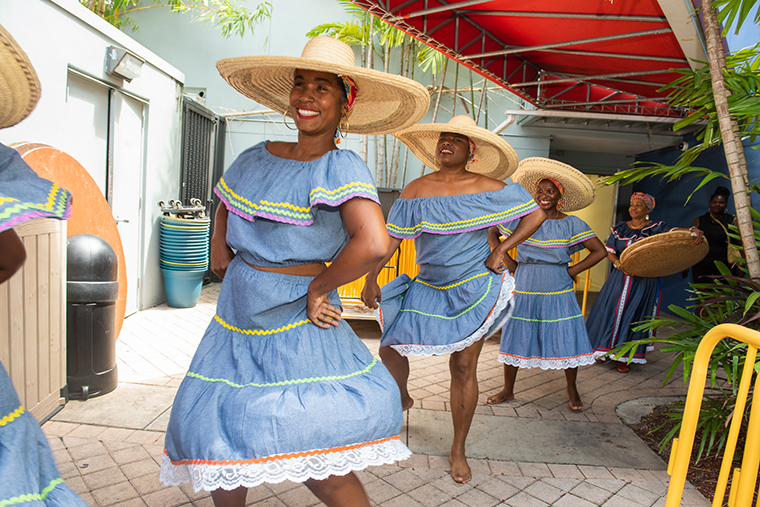
Designed for a wide audience, the festival reflects the communal ties that symbolize Haitian social life, this year’s Festival will be held both in-person and online.
“This year’s festival is particularly exciting,” says M.J. Logan, the festival coordinator. “The Little Haiti Book Festival plays a critical role in Miami, offering a rich and varied portrayal of Haitian culture that counters the often narrow depictions seen in mainstream media.”
It’s a way, she says for the community to celebrate their cultural heritage while sharing their history, customs, culture and art with the larger community, fostering an appreciation and understanding of the Haitian language and culture.
Over the past decade the festival has expanded to include not only literary discussions but a wide range of cultural expressions, including dance, music and art. Logan says one of the most notable developments is the growth of the festival, enabling them to feature more than a 100 writers and publishers.
With a theme of Ansanm/Together, this year’s event showcases a variety of activities including two panel discussions, "Haiti in the Media" and "Artificial Intelligence in the Arts," music with Inez Barlatier and DJ Nickymix, a dance performance and workshop on traditional Haitian dance hosted by the Nancy St. Leger Dance Company, yoga with Alexandra Jeanty Leclerc, storytelling with Liliane Nérette Louis and Marie Ketsia Theodore-Pharel, comedy by Paul Julmeus, a HistoryMiami story booth, a science room and children’s alley and an Ekphrastic poetry workshop with poets Herold Pierre and Fabienne Josaphat.
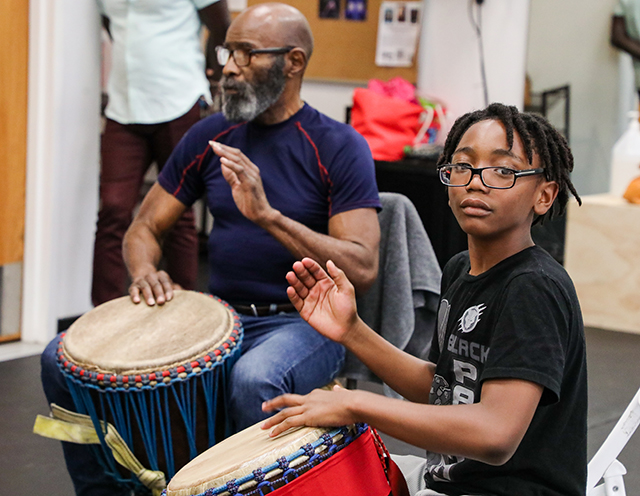
Logan notes that in Haitian culture, storytelling is used not only for entertainment but also as a means to impart wisdom, preserve history and reinforce community bonds.
Haitian-born Josaphat, 45, who earned her MFA in creative writing at FIU and is author of the novels, "Dancing in the Baron’s Shadow" and the upcoming "Kingdom of No Tomorrow" (Algonquin) and winner of the 2023 PEN/Bellwether Prize for Socially Engaged Fiction, is also a published poet whose work has appeared in "Hinchas de Poesia," "The New Engagement" and "Eight Miami Poets."
“I’m excited to teach this workshop in Ekphrastic poetry,” says Josaphat, the mother of two young kids, who often rises at 4 a.m. to write.
Ekphrastic poetry, originating from the Greek word meaning, “description,“ is a form of creative expression that involves vivid and dramatic descriptions of visual art, creating a dialogue between both artistic mediums.
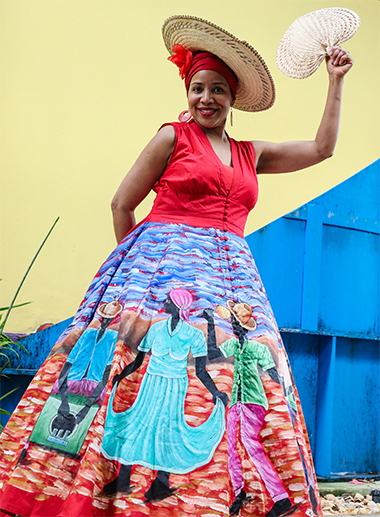
“People should do this more often,” she says. “Poetry is an art and goes hand-in-hand with visual art.”
She admires the poetry of Etheridge Knight (her favorite and author of "A Wasp Woman Visits a Black Junkie in Prison") Yusef Komunyakaa, Nikki Giovanni, Pablo Neruda and Martinique poet Aimé Césaire.
For this exercise, Pierre and Josaphat will draw on the paintings in the exhibit "Ayiti Nan Kem | "Haiti In My Heart" at the Little Hait Cultural Center curated by Edouard Duval-Carrié and Marie Vickles.
Attendees are encouraged to explore themes of nostalgia, identity and hope in English, French and Haitian Creole as they interact with the artwork of Rachelle Scott, Sophia Lacroix and Louis Rosemond.
Josaphat wants attendees to feel confident about expressing their feelings about the work and to not be shy sharing how they feel.
“You don’t have to be Shakespeare,” she says. “Poems can be a lot of different things and don’t need to be something elite. Poetry is feeling; allow yourself to feel and express that. Someone else may say, I never thought about it that way.”
She also hopes people will be inspired to write their own poetry and to reconnect with Haiti, a country experiencing political strife and violence with people not being able to return to their home country.
For host and cultural ambassador-at-large, Mecca “Grimo” Marcelin, the Festival is a way to promote literature, reading and books in all languages.
While he was born in Brooklyn, Marcelin, also a poet, actor and Kreyol hip hop artist, says, “Haiti is born in me,” also the name of one of his poems.
He laments the rise ofc cellphone culture in our youth and says he hopes today’s youth still want to see “ink on the page,” and read the “black and white.”
A fan and admirer of Miami’s own award-winning novelist, Edwidge Danticat (“my favorite”), Marcelin says if reading is important for kids, it’s twice as important for kids in Little Haiti.
He hosts monthly soirees at the Caribbean Marketplace in Little Haiti called “Poetic Lakay” the last Friday of each month and takes students on cultural excursions through Little Haiti.
His non-profit organization, Children’s Hope Chest of Dreams or, (FePouLi, or To Do For Them) creates avenues for children to express themselves through the arts.
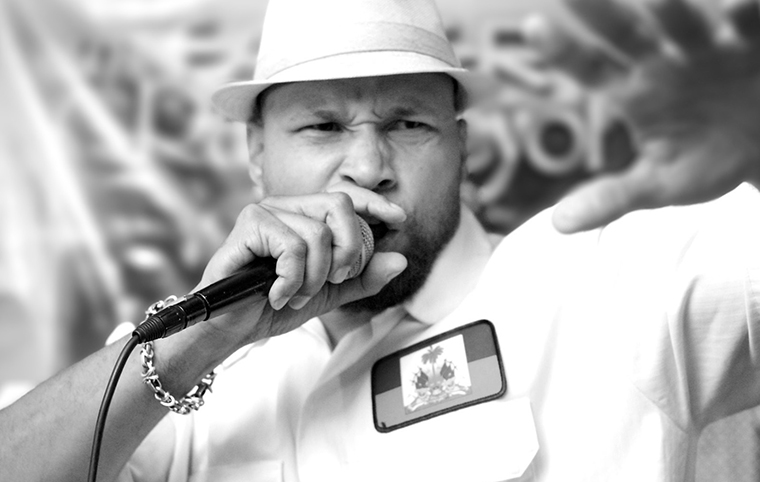
Mecca Grimo Marcelin. (Photo by Canseephoto)
In May he will host a Painting with a Purpose workshop for youth offering basic painting techniques in conjunction with a dialogue about culture and community.
Both Josaphat and Marcelin are visibly proud of their Haitian background, heritage and identity.
“We want our guests to leave feeling inspired and connected to the Haitian experience,” says Logan. “Our goal is for the larger community to gain a deeper appreciation of the complexity and richness of Haitian life and culture and to recognize Haiti’s contributions to the visual and literary arts and to the world’s culture, contributing to a richer, more diverse cultural landscape.”
The Miami Stories Recording Booth at the LHBF
As part of HistoryMiami Museum’s on-going efforts to share Miami stories, Catherine Farmer, the Miami Stories Coordinator, will be on-site at the Little Haiti Book Festival to collect stories from participants, as part of their on-going efforts to connect and engage with the community.
Created in 2009, the Miami Stories Initiative, an oral history project, collects written, oral and video stories about life in Miami to record for future generations.
Farmer says currently the project has about 1,000 stories of “real-life” in the neighborhoods of Miami, many centered around the lived experience of immigration narratives about survival, arrival to the U.S. and to Miami in particular, reasons for their displacement from their country of origin, and experiences adjusting to a new language, culture and way of life in Miami.
Farmer, 26, of Haitian heritage, was born in Boston and lived abroad in France and Rwanda before relocating with her family to Miami in the early 2000s.
“As a Haitian-American, I feel particularly connected to the Haitian stories,” Farmer says, noting that Miami was not always hospitable or welcoming to its new Haitian arrivals.
“However,” she says, “The tide is changing. Haitians now feel a new sense of joy and cultural pride around their Haitian heritage.”
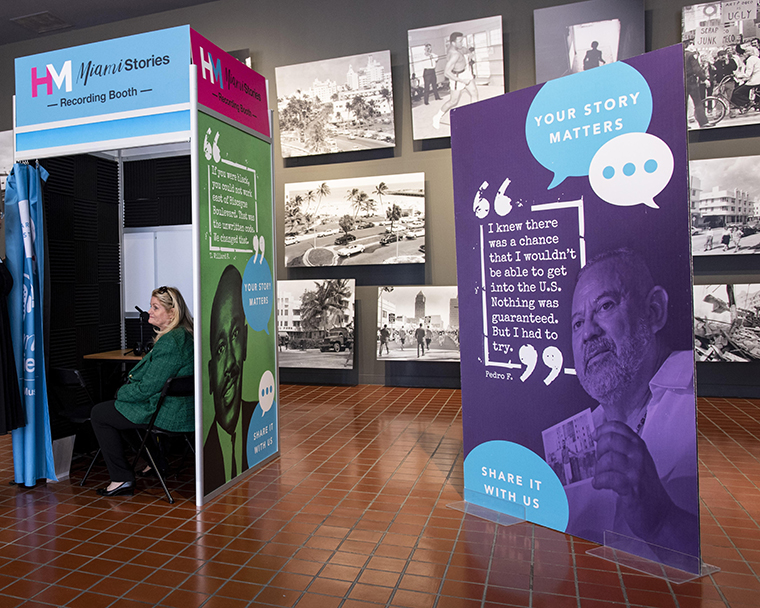
“This is a chance for people to sit down and share something meaningful, what’s in their heart and why it is special for them,” she says, noting that despite a common theme, no two stories are alike.
Shared experiences in the Haitian diaspora include stories of hardship, coming to America by sea, friends and relatives dying during the journey, feeling unwanted in their new home, confronting racism and still finding the resilience to put down roots, forge new connections and cultivate the desire to succeed.
“We, the younger generation have a lot to be thankful for,” Farmer notes, saying she sees this opportunity to share one’s story as a call to action.
“It’s a day to celebrate the Haitian community, how far we’ve come and how deeply we are part of the fabric of the city of Miami,” she says. “It’s a great way for the HistoryMiami Museum to uplift and amplify these human stories.”
Recording booths are equipped with a privacy curtain and recording equipment.
Participants can choose to record their story in private, answering a series of prompts such as “When did you feel like a Miami-ian,” or “share your favorite story of Little Haiti,” or choose to be interviewed by Farmer who will ask a series of questions about their trajectory to Miami and their reflections on the city.
Interviews typically take between 5 to 15 minutes.
In addition, along with HistoryMiami, Farmer is also working on another local history project entitled, “Stories of Resistance from Black Miami,” focusing on those involved in past or contemporary social justice movements.
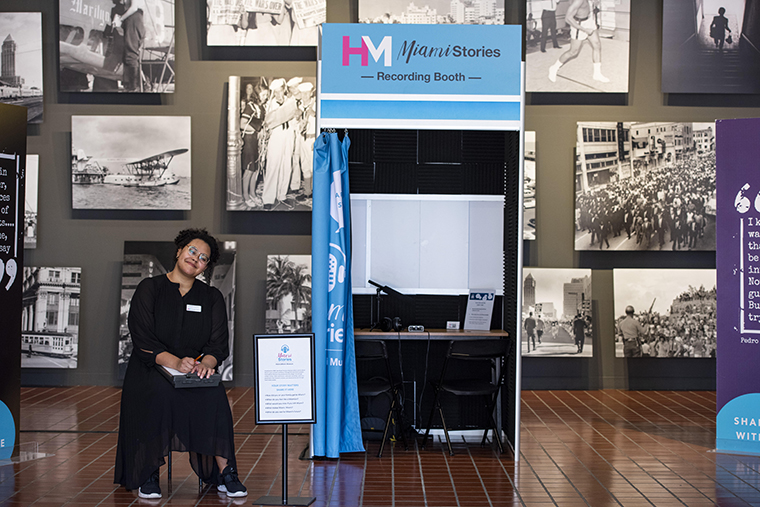
Notable residents include activists Thelma Gibson, former city commissioner Betty Ferguson and Lonnie Lawrence, a native of Overtown, who shares stories from his 30-year career with the Miami-Dade Police and his fight for equitable representation.
If You Go
What: The Little Haiti Book Festival.
When: 11 a.m. to 6 p.m., Sunday, May 5. (Highlights from the festival will be streamed online beginning Sunday, May 19 at miamibookfaironline.com.
Tickets: Free.
Where: Little Haiti Cultural Complex, 260 NE 59th Terrace, Miami, Florida 33137.
Information: call on 305 237 7258 and visit miamibookfaironline.com.
Parking: Free parking available in the Little Haiti Cultural Complex parking lot.
For more information visit HistoryMiami.org.
To hear selections from actual Miami stories, visit Miami Stories on Soundcloud at M.soundcloud.com/miamistories.
 MAIN MENU
MAIN MENU

